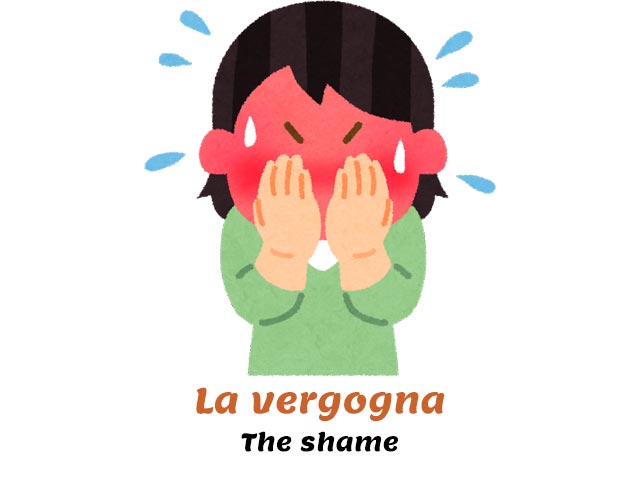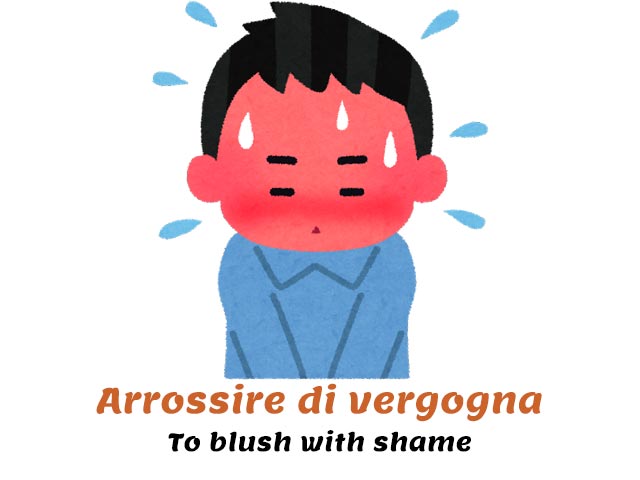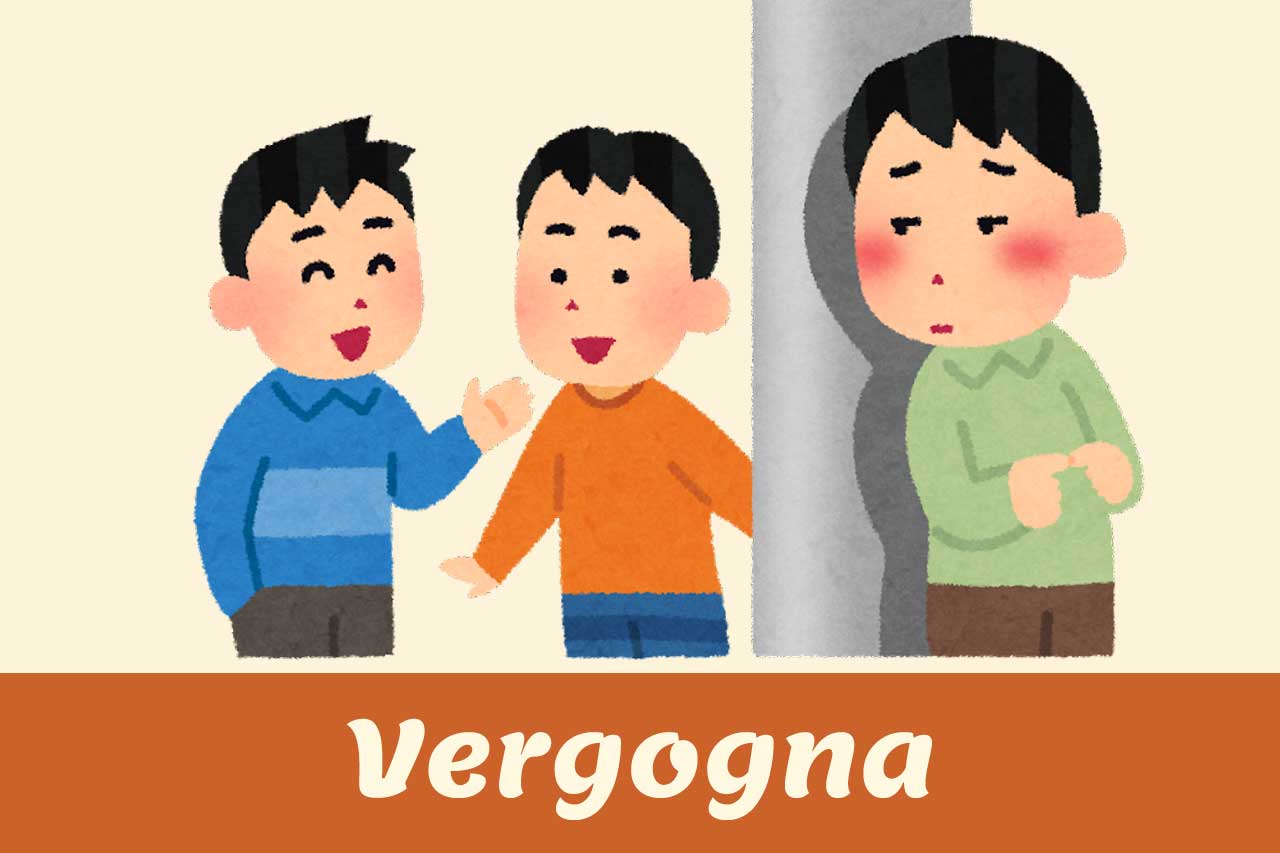Italian word of the day
| Origin | From the Latin word verecundus, “chaste, humble” |
| Translation | Shame, disgrace |
| IPA pronunciation | /verˈɡoːɲa/ |
Vergogna
Shame, embarrassment, disgrace
Different forms of vergogna
Like most nouns in Italian, vergogna has two articles (definite or indefinite articles) and two numbers (singular or plural).
Una vergogna
A shame
Delle vergogne
Some shames
La vergogna
The shame
Le vergogne
The shames

Examples
Maria prova vergogna quando commette un errore in pubblico.
Maria feels shame when she makes a mistake in public.
Luca prova molta vergogna per ciò che ha fatto.
Luca feels a lot of shame for what he did.
Sara, che aveva agito senza pensare, provò una profonda vergogna.
Sara, who had acted without thinking, felt a deep sense of shame.
Expressions
There are a number of idiomatic expressions featuring vergogna in Italian. Some of them are:
- non avere vergogna (to have no shame)
- essere senza vergogna (to be shameless)
- non avere niente di cui vergognarsi (to have nothing to be ashamed of)
- provare vergogna (to feel shame)
- sprofondare dalla vergogna (to sink through the floor)
- essere una vergogna (to be a disgrace)
- arrossire di vergogna (to blush with shame)

For example, you can say:
Francesca prova molta vergogna a parlare in pubblico.
Francesca feels very ashamed to speak in public.
Paolo cadde nella pozzanghera e sprofondò dalla vergogna.
Paul fell into the puddle and sank through the floor.
Il comune ha sperperato tutti i fondi: è una vera vergogna.
The municipality has squandered all the funds; it is a real disgrace.
Related words
From vergogna you get the reflexive verb vergognarsi, “to feel ashamed”, and svergognare, which means “to put somebody to shame”.
Lorenzo è stato svergognato davanti a tutta la classe.
Lorenzo was put to shame in front of the whole classroom.
From vergogna you can also get the expressions vergogna! and vergognati!, which are translated into English as “shame!” and “shame on you!”.
If you feel very embarrassed, you can say che vergogna!, “how embarrassing!”.
Che vergogna, avevo un pezzo di carta igienica appiccicato alla scarpa!
How embarrassing, I had a piece of toilet paper stuck to my shoe!

Vergogna, in its plural forms le vergogne, is an expression referring to one’s private parts. This shouldn’t come as a surprise, since this topic is often taboo, so it implies shame.
More free Italian resources
You might want to keep learning Italian online with these free Italian resources:
❤️ If you liked this lesson on how to use vergogna in Italian, share it with your friends!


